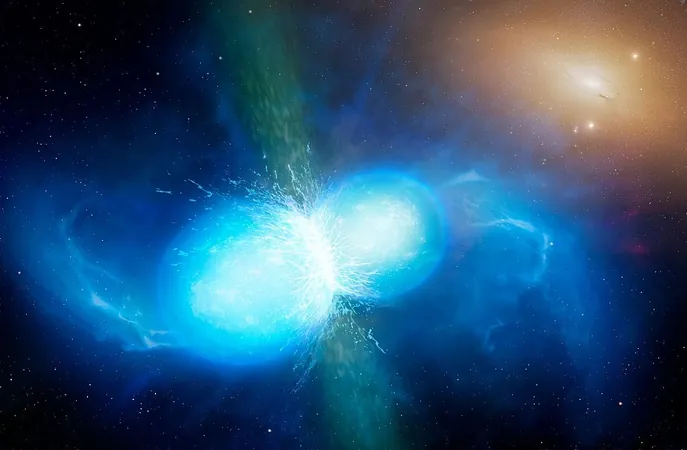
Unlocking the Universe: Can Magnets Detect Gravitational Waves?
2025-07-12
Author: William
Revolutionizing Gravitational Wave Detection
Gravitational waves, the ripples in the fabric of spacetime caused by colossal cosmic events like black hole collisions, have long challenged scientists. These waves, predicted by Einstein over a century ago, create minuscule distortions—far tinier than the width of a proton. Now, a groundbreaking study led by Valerie Domcke from CERN suggests that magnets, of all things, might hold the key to detecting these elusive gravitational ripples.
A New Kind of Detection
Traditionally, gravitational wave observatories like LIGO have relied on laser interferometry to measure these incredibly subtle changes in distance. However, Domcke's innovative research proposes a bold new method, utilizing magnetic fields themselves as sensors. When a gravitational wave traverses a direct current (DC) magnetic field, it interacts with conducting wires that generate the field, causing them to oscillate at the wave's frequency.
These oscillations produce detectable alternating currents, transforming the wave’s spacetime distortions into measurable electrical signals. This system creates what researchers are calling a 'magnetic Weber bar'—a nod to the pioneering gravitational wave research of physicist Joseph Weber in the 1960s.
Exceptional Sensitivity
What’s truly exciting about this approach is its sensitivity across various frequencies, outperforming traditional detectors optimized for specific ranges. This makes magnetic detectors an exceptional complement to existing technologies.
Bridging Two Frontiers of Physics
One of the most astonishing aspects of this discovery is its potential to bridge two cutting-edge fields: gravitational wave detection and dark matter research. Powerful magnets used in experiments like DMRadio and ADMX-EFR, which search for elusive axion dark matter particles, could also function as gravitational wave detectors. It’s like hitting two birds with one stone in the quest to unravel the universe's deepest mysteries.
A Promising Future
This dual functionality isn’t just a technological advantage; it reflects how advancements in one area of physics can fuel breakthroughs in another. As we continue to enhance the power of magnetic systems in dark matter searches, they could soon provide practical tests for this pioneering detection technique.
The Big Picture
This convergence of gravitational wave astronomy and dark matter research epitomizes the surprising connections modern physics continues to unveil. With every discovery, we inch closer to unlocking the secrets of the universe—potentially leading to groundbreaking insights into the nature of reality itself.









 Brasil (PT)
Brasil (PT)
 Canada (EN)
Canada (EN)
 Chile (ES)
Chile (ES)
 Česko (CS)
Česko (CS)
 대한민국 (KO)
대한민국 (KO)
 España (ES)
España (ES)
 France (FR)
France (FR)
 Hong Kong (EN)
Hong Kong (EN)
 Italia (IT)
Italia (IT)
 日本 (JA)
日本 (JA)
 Magyarország (HU)
Magyarország (HU)
 Norge (NO)
Norge (NO)
 Polska (PL)
Polska (PL)
 Schweiz (DE)
Schweiz (DE)
 Singapore (EN)
Singapore (EN)
 Sverige (SV)
Sverige (SV)
 Suomi (FI)
Suomi (FI)
 Türkiye (TR)
Türkiye (TR)
 الإمارات العربية المتحدة (AR)
الإمارات العربية المتحدة (AR)